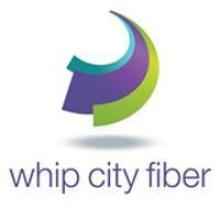Westfield To Widen Whip City: FTTH Pilot A Hit
Another pilot program is evolving into greater things.
Whip City Fiber, the Fiber-to-the-Home (FTTH) network deployed by Westfield Gas & Electric (WG+E) in Massachusetts, announced in April that it has chosen three more neighborhoods for network expansion. Residents in the target neighborhoods are invited to sign-up by May 15th for one month’s free service. WG+E offers symmetrical 1 Gigabit per second (Gbps) service for $69.95 per month for residents and $84.95 per month for commercial subscribers. Wi-Fi routers are included; there is no charge for installation and no contracts.
Whip City Fiber only offers Internet access but like other municipalities opting out of video services, they see the trend toward Internet TV:
"This is not TV. But what we see is a lot of cord cutters that are streaming programming on Netflix, Hulu and Apple TV," [WG+E marketing and customer service manager Sean Fitzgerald] said. "The only thing missing are sports channel and those are coming around."
Expanding Use Of Fiber In Westfield
A Berkman Center report on nearby Holyoke Gas and Electric referenced Westfield’s recent pilot project. WG+E began using fiber-optic connections to monitor substations and municipal facilities, including schools and administrative buildings, about 20 years ago. The community also has a Municipal Light Plant (MLP), the entity responsible for owning and operating a municipal fiber network, and used the fiber infrastructure to provide Internet access to Westfield’s municipal facilities and local businesses for the past ten years.
In February, WG+E announced that it would expand the network beyond the pilot area and encouraged residents to express their interest by signing up. It was through those sign-ups, in part, that the utility determined these first expansions. According to WG+E General Manager, choosing the target area was no easy task:



